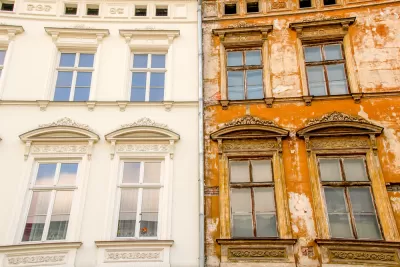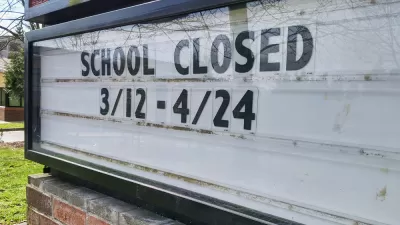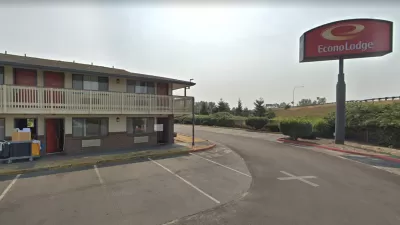Disaster gentrification is a widely documented phenomenon, like in New Orleans after Hurricane Katrina. The coronavirus and the resulting economic downturn could have similar consequences.

Marcus Harrison Green reports from an unincorporated neighborhood called Skyway, located just south of Seattle, where members of the Black community are pondering big questions about the likelihood of the current economic crisis to further drive processes of gentrification and displacement in the region.
Green finds a lot of uncertainty among local workers and business owners in a community already populated with residents that moved from neighborhoods close to the center of Seattle as a result of the increasing cost of living in the region. Like so many other cities, the working class, including many communities of color, has been displaced from traditional neighborhoods in Seattle. Many people in the region are worried that scarcities of work and government support are likely to exacerbate those trends.
Green's survey of the complexities of gentrification and displacement in the context of COVID-19 include a survey of proposed legislation that could stem the worst effects of the economic downtown resulting from stay-at-home orders in the state, as well as insight from experts on the potential for the crisis to exacerbate gentrification. Junia Howell, an urban sociologist at the University of Pittsburgh, is quoted to describe the likelihood of the coronavirus presents to vulnerable communities: "Crisis doesn’t just reveal inequality," says Howell "It makes it worse."
FULL STORY: Coronavirus recovery can’t lead to a more gentrified Seattle

Planetizen Federal Action Tracker
A weekly monitor of how Trump’s orders and actions are impacting planners and planning in America.

Map: Where Senate Republicans Want to Sell Your Public Lands
For public land advocates, the Senate Republicans’ proposal to sell millions of acres of public land in the West is “the biggest fight of their careers.”

Restaurant Patios Were a Pandemic Win — Why Were They so Hard to Keep?
Social distancing requirements and changes in travel patterns prompted cities to pilot new uses for street and sidewalk space. Then it got complicated.

Platform Pilsner: Vancouver Transit Agency Releases... a Beer?
TransLink will receive a portion of every sale of the four-pack.

Toronto Weighs Cheaper Transit, Parking Hikes for Major Events
Special event rates would take effect during large festivals, sports games and concerts to ‘discourage driving, manage congestion and free up space for transit.”

Berlin to Consider Car-Free Zone Larger Than Manhattan
The area bound by the 22-mile Ringbahn would still allow 12 uses of a private automobile per year per person, and several other exemptions.
Urban Design for Planners 1: Software Tools
This six-course series explores essential urban design concepts using open source software and equips planners with the tools they need to participate fully in the urban design process.
Planning for Universal Design
Learn the tools for implementing Universal Design in planning regulations.
Heyer Gruel & Associates PA
JM Goldson LLC
Custer County Colorado
City of Camden Redevelopment Agency
City of Astoria
Transportation Research & Education Center (TREC) at Portland State University
Camden Redevelopment Agency
City of Claremont
Municipality of Princeton (NJ)





























